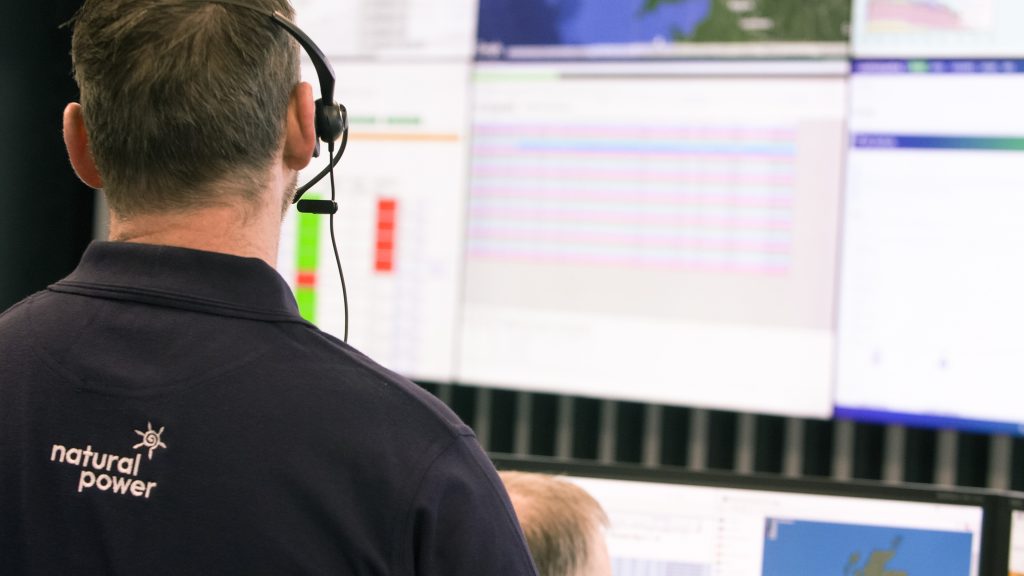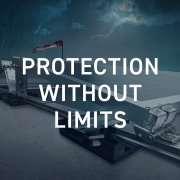By Ciaran Farrell, Director of Consulting and Innovation Lead at Natural Power; and Iain Dinwoodie, Director of Innovations at Kudo Energy
Commercialising spin-out technology is crucial for several reasons, particularly in industries like renewable energy, where innovation can have a wide-reaching, real-world impact.
We often hear about spin-outs emerging from universities or research institutions, where cutting-edge technology is developed, and the spin-out or commercialisation process is the bridge that takes these ideas from the lab to live, helping to accelerate innovation. Without this formal commercialisation process, innovations might remain theoretical or underutilised, delaying their potential benefits for years.
In renewable energy, spin-out technologies have the potential to tackle some of the most pressing global challenges, such as climate change, energy security, and resource depletion. By commercialising these technologies, they can be deployed on a large scale, contributing to sustainable solutions like cleaner energy sources, carbon reduction, and energy efficiency.
This process also of course leads to profitable opportunities. New companies, often formed around these technologies, can create jobs, drive investment, and boost local and global economies. Successful renewable energy technologies can spark new industries, attract funding, and generate long-term economic benefits. What’s more, when spin-outs succeed, the revenue they generate can be reinvested into further R&D, creating a virtuous cycle where more funding is available for exploring new technologies, leading to the continuous development of innovation.
Commercial success is inevitably attractive to investors too. From venture capital firms to corporate entities, this influx of capital is vital for scaling operations, expanding markets, and refining the technology, whilst also supporting innovators gain the financial backing required to compete in our highly competitive marketplace.
Commercial success is inevitably attractive to investors too. From venture capital firms to corporate entities, this influx of capital is vital for scaling operations, expanding markets, and refining the technology, whilst also supporting innovators gain the financial backing required to compete in our highly competitive marketplace.
The global shift to renewable energy needs to happen rapidly to meet our climate goals, and spin-out companies can introduce disruptive technologies that accelerate this transition, offering more efficient, affordable, and sustainable solutions. Commercialisation ensures that these innovations reach the market swiftly, contributing to faster adoption, which will in turn, help us all to reach net zero targets faster.
At Natural Power, we have a proven history of innovation throughout our 30 years in business – from developing Ventos, a computational fluid dynamics (CFD) model, with the University of Porto; to using eDNA techniques to improve the efficiency and cost-effectiveness of offshore ecological surveys, and the creation of our EchoSense bat detection system to support the protection of bats at wind farms. Innovation has been identified as a key driver for growth and an area where we can add significant value to our clients’ operations.
As a result, we proactively foster a culture of innovation where promising ideas are encouraged and provided with the support needed to develop them to the point of commercialisation. Last year we created a brand-new role, Head of Innovation, to help create, build and grow innovation capabilities, capturing new ideas, identifying growth opportunities, developing a comprehensive technology strategy, and overseeing its delivery.
The term innovation has become widely, sometimes overly, used and it is important to define the difference between what is truly innovative, and what is otherwise simply progress or continuous improvement.

When we talk about innovation, we refer to breakthrough ideas, novel approaches and capabilities that solve existing or future challenges with the potential to significantly impact our business, our clients and the industries we serve. In contrast, continuous improvement is the practice of making incremental enhancements to existing services, processes, or products, to achieve better outcomes without making radical changes to the fundamental structure or offering.
While innovation drives long-term growth, continuous improvement ensures that day-to-day operations are efficient and effective. People should be empowered to take calculated risks in the pursuit of innovation but should also recognise the value of refining existing practices. Both approaches should be valued and rewarded.
The pace of development of renewable energy projects continues to accelerate globally and in mature markets like Europe and North America the complexity of sites continues to increase as they involve hybrid technologies, repowering of older sites and ever more remote locations.
Digitalisation presents one opportunity to develop and operate projects more efficiently without compromising on safety or quality. In fact, when used correctly, operational software and associated data can improve efficiency, safety and quality. This is achieved by removing manual processes, providing real-time insights and bringing together disparate sources of information to allow holistic decision making.
Natural Power has a long history of innovations in its approach to analysis and delivery of operational services. This has included building bespoke tools for supporting the delivery of services to clients. We have recognised that there is an opportunity to benefit the global renewables industry and accelerate its continual development of new and improved operational services through making software solutions available to the wider market.
The most recent example of this is KUDO Energy, a dedicated renewable energy software provider that has been spun out of Natural Power to drive digital innovations for the wider industry.
KUDO’s first products, Connect and Command, are designed to improve efficiency and safety of renewable projects throughout the project lifecycle. By creating a separate company to deliver digital products, best practice software development and support approaches have been adopted while also leveraging the deep renewable industry expertise within the team.
Collaboration is also a critical approach, both internally between traditionally disparate areas of the business and externally working with academia and industry partners on a range of novel projects. We have forged numerous academic collaborations, ranging from supporting student interns across various Scottish and international institutions working on a diverse range of topics such as ecology, complex wind flow regimes and asset reliability. This has allowed development of new areas of expertise within the business prior to wider industry adoption such as modelling the interaction of battery energy storage systems (BESS), solar and wind energy from both a technical and economic perspective. A number of interns have gone on to take up positions within the company helping to develop the outputs from their projects into commercial products and services. We have also supported PhD and EngD research projects to drive innovative new ways of working in areas including power forecasting and condition monitoring prognosis.
There are also wider collaboration projects where we use the expertise and experience from decades of working in the industry to help add significant value to new and novel solutions. A recent example involved us working with the Offshore Renewable Energy (ORE) Catapult, Anakata, Swansea University and City, University of London through its Marine Energy Engineering Centre of Excellence (MEECE) to develop a streamlined process for designing and optimising the siting of enhanced vortex generators (VG) for wind turbine blades. Natural Power benefited from the collaboration by gaining insight into the cutting-edge research and development in aero-dynamic upgrades. We brought in our experience in quantifying real world benefits to operational projects to validate the outcomes of the project and help identify the potential benefits to the industry. The collaboration between academia, SME, consultancy and innovation centre brought complimentary perspectives to the project and further demonstrated our commitment to innovation.
In summary, commercialising spin-out technology is key to transforming groundbreaking ideas into practical solutions that can have a really meaningful impact, particularly in renewable energy, where innovation will play a huge part in driving environmental sustainability and economic growth for all.
Case study – Kudo
Formed in 2023, KUDO is a spin-out of the international renewable energy consultancy, Natural Power. It is comprised of a team of experienced technical consultants, control room operators and software developers, all with backgrounds in the renewables sector.
The business is led by Leanne Ramage, who previously managed Natural Power’s global Advisory & Analytics department. She is supported by Daniel Marmander, Director of Technology, and former Head of Innovations and Digitalisation at Natural Power; Iain Dinwood, Director of Innovations and former Head of Advanced Performance Engineering at Natural Power; along with Kevin Armstrong, Product Director, who previously led Natural Power’s ControlCentre®.
The team formed the spin-out to specifically take forward the commercialisation of digital products in the wider renewable energy market, outside of Natural Power’s retained client base.
From managing site access, egress and inductions, through to resource planning and site management, its digital products have been designed to drive efficiencies when developing, constructing and operating project portfolios.
About Natural Power
Natural Power is an independent consultancy and service provider that supports a global client base in the effective delivery of a wide range of renewable projects including onshore wind, solar, renewable heat, energy storage and offshore technologies. It has a global reach, employing more than 500 staff across 13 international offices. Its experience extends across all phases of the project lifecycle from initial feasibility, through construction to operations and throughout all stages of the transaction cycle.















